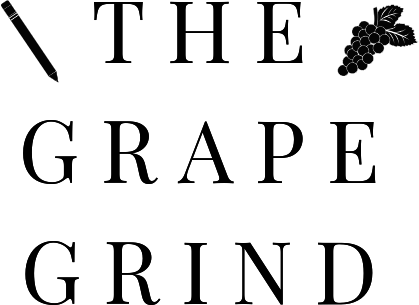

Pyrazines!
Pyrazines!
for the month of MARCH
for the month of MARCH


How this works…
How this works…
1. Grab 2-4 of the following wines from the list below.
2. Taste along with the video following.
3. Add your thoughts to the comments!
WINE LIST
Red Flight (lowest to highest concentrations)
1. Left Bank Bordeaux (Margaux)
2. Chilean Cabernet Sauvignon
3. Loire Valley Cabernet Franc (Chinon)
4. Chilean Carménère
Red Flight (lowest to highest concentrations)
1. Left Bank Bordeaux (Margaux)
2. Chilean Cabernet Sauvignon
3. Loire Valley Cabernet Franc (Chinon)
4. Chilean Carménère
Some information on Pyrazines
For starters, this is the compound that causes “green” aromas in wine:
VEGETAL – bell pepper, jalapeño – asparagus, spring pea
GRASS – grassiness
HERBAL – mint, tarragon, parsley basil
There are two that are more common: the most common one is called
IBMP (3-Isobutyl-2-methoxy) “The bell pepper and veggie one” found at concentrations above sensory threshold levels
IPMP (3-Isopropyl-2-methoxy) The one with aromas of asparagus, peas, and earth, and peanut – also occasionally reported at lower levels and typically involved if there’s stem inclusion in fermentation, or lady bug taint
How they form
- They are in the berry (mostly skins – some in the seed and stem)
- They start forming at fruit set
- They accelerate during early ripening (fastest growing phase)
- They decline a week or two after verasion during late ripening (the berry gets larger and more diluted)
Concentrations are impacted by…
The Actual Grape
Bordeaux varieties have the highest concentrations
- Whites – Sauvignon Blanc (small concentrations in Semillon)
- Reds – higher concentrations in Carménère and Cabernet France followed by Cabernet Sauvignon and Merlot
Climate (sunlight and temperature)
- More Sunlight = less pyrazines (lowers the concentration)
- Warmer Temperatures = less pyrazines (correlated with sunlight)
Vigour
- More Vigour = more pyrazines
- More Irrigation = more pyrazines
- More Nutrients (nitrogen) = more pyrazines
Lady Bug Taint whaaaat?!
Ladybugs can have pyrazines on them (IPMP usually) and if they arent removed from harvested grapes can make it into the must and be present in the wine (usually take on a more peanutty character)
Vineyard Management
Canopy management is important! Growers can control the leafy part of the vines, to generate more or less of this compound using Leaf Removal, Shoot Removal = more sunshine
Winemaking
Pyrazines extract easily – the vast majority get extracted with skin contact before fermentation even starts
The last in whites gets extracted during pressing
The last in reds gets extracted during Cap management like pumping over
- After harvest Pyrazines can still remain in stems, so destemming can be important to limit them
- Thermovinification (heating to high temps) can limit them, but also can destroy fruity aromas
- Extended Oak aging can lessen their concentration
- Blending with other wines can lessen their concentration
Download and print the free Flavors, Flaws, and Faults PDF below to learn more about this compound!


0 Comments